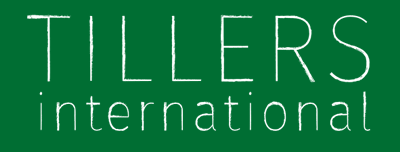Letter from the Director
Building on Historic Skills
Tillers International has been working to preserve and build upon historic skills in the U.S. and across the world for nearly 40 years. Hundreds of individuals have joined us in Michigan and in countries like Mozambique, Burkina Faso, and Uganda every year to learn ways of working wood, metal and farm fields that have been honed over thousands of years but have largely been lost in the last few decades.
This have been challenging times for sharing skills and experiences, but also a time in which many people have found renewed interest in some measure of self-reliance. Stepping into our workshops and our draft animal barn, we see possibility and tradition.
The demand for our classes and training in the U.S. and internationally has not diminished but instead has spiked as people reflect on the value of working with one’s hands and the importance of the crafts. Understanding how and why tools and practices were developed speeds innovation and allows us to adapt them for new conditions and new places.
As I watched the Abbey Collection of historic farming tools being moved to our new storage facility in Scotts, MI, I was reminded of the incredible feats of engineering, design,
and manufacture that went into the mechanization of agriculture in the 19th and 20th centuries. The skills, vision, and tenacity of farmers and craftspersons in small shops and big cities made it possible to achieve so much in a changing environment.
What we value in a Farmer, Blacksmith, Cooper, Farrier, Mason, or Carpenter is much more than their ability to use the tools; it is the ability to reach back to problem-solving skills developed over centuries.
We are expanding our programming in the U.S. to offer more options to even more people, and are exploring new projects with farming communities overseas, and we’d like you to join us as we continue teaching these historic and viable skills. Knowledge is one of the most fundamental materials for building a better future rather than being limited by the past.
Learning, preserving, and sharing the skills and methods that have shaped our history and our world helps to prepare for those moments when our world changes unexpectedly. I hope you will join us in making our world more resilient. Every contribution makes us more capable as an organization and as a community.
Robert Burdick
Executive Director
Robert Burdick, Tillers International Executive Director and International Technical Field Director.


